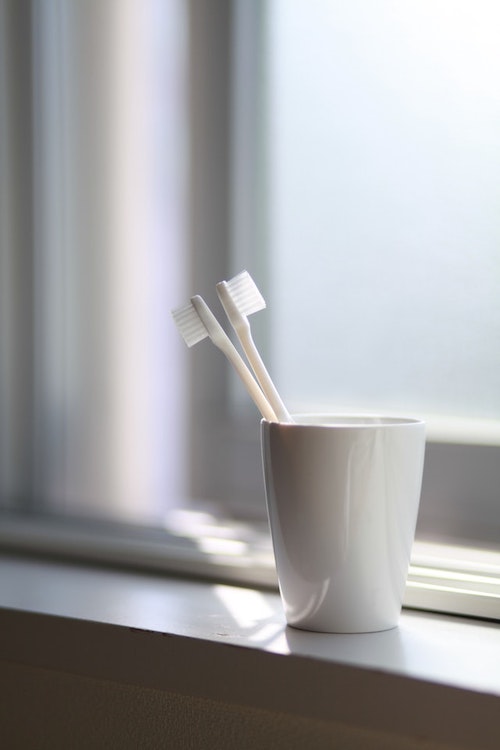
In recent years a number of new toothpastes and mouthwash products have emerged as herbal oral care alternatives to traditional flouride to reduce dental plaque formation. Many of these products contain a combination of botanicals. As this latest study states, the trials supporting the use of these ingredients are conflicting and inconclusive. Herbal Oral Care Study Abstract
ABSTRACT/ Various chemical agents have been used in toothpastes and mouth rinses and a few have been shown to reduce dental plaque formation [5, 6]. Due to an increased awareness of indigenous medical practices in various parts of the world, the use of “herbal” medicine has engendered interest and facilitated the growth of complementary and alternative therapies in health care promotion. Herbal ingredients have been present in oral care products, more commonly in South Asian countries, for some time [7,8,9]. The most common herbal ingredients to be incorporated into oral care products (e.g., toothpaste and mouth rinse) are sanguinarine, propolis, Azadirachta indica (neem), charcoal, clove, and miswak [10]. In the rural regions of South Asian countries, use of natural products like neem twigs, charcoal powder, and others have been an important part of regular oral hygiene practice for centuries. Many of the herbal or plant extracts have been promoted as possessing anti-inflammatory, antipyretic, analgesic, antibacterial, antiviral, anticarcinogenic and antioxidant activities by means of in vitro, in vivo, and animal studies [10, 11]. Based on these observations, several oral care product manufacturers and multinational companies have incorporated herbal ingredients into their products. Manufacturers of these products use a wide range of herbal ingredients which they claim mimic the benefits of traditional toothpastes – the ability to fight plaque, freshen breath and prevent gum disease. The tendency to “go natural” has fuelled an increase in demand for such products by consumers with many apparently opting for them because they are not tested on animals, carry no side effects, use no animal products, are vegan friendly, contains no added artificial colours or flavours, and for cultural reasons. In some regions, sale of herbal products outnumbers fluoride-based toothpastes. Comparison between herbal and conventional oral care products for the reduction of dental plaque or gingivitis were tested in clinical trials. Despite the large number of trials conducted, results are conflicting and inconclusive. Some of these products were approved by dental associations in some countries. Existing literature reviews are primarily narrative or based on single herbal ingredient (e.g., Aloe vera) in mouth rinse or toothpaste [13,14,15,16]. There is not a single, comprehensive systematic review which synthesized the current evidence for assessing effectiveness in reducing dental plaque and gingivitis using herbal oral care products such as herbal toothpaste (HTP) and herbal mouth rinse (HMR). Therefore, the objective of this study is to systematically assess the literature and quantitatively measure the effectiveness of herbal toothpaste and mouth rinse compared to conventional over the counter (OTC) products in reducing dental plaque and gingival inflammation in adults. Editor’s note: This study did not address the issue of safety of flouridated dental products, but was a systematic comparison of non-herbal and herbal oral care products. Comparison: Over the counter (OTC) non-herbal oral care products (Fluoride toothpaste, Non-fluoride/Non-herbal toothpaste, Chlorhexidine mouth rinse or non-herbal Mouth rinse). Outcomes: Reduction in dental plaque levels and gingival inflammation. Focused question: Are the herbal care products (toothpaste and mouth rinse) non-inferior in reduction of dental plaque and gingival inflammation over the commercial over the counter (OTC) products in adults? Study selection: Electronic searches from all sources retrieved 493 citations (Fig. 1). Using titles and abstracts to screen content, 305 citations were excluded duplications. 126 articles were excluded due to non-clinical studies in humans or were reviews or opinion papers. Out of 62 clinical trials, 38 did not meet the inclusion criteria. Summary of Study for Herbal Toothpastes: Study Summary for Herbal Mouth Rinse Conclusion/ Herbal toothpaste appears to be equally effective as non-herbal toothpaste, but not superior to fluoride toothpaste. The herbal mouth rinses were found not to be superior to chlorhexidine mouth rinses. The quality of evidence appears to be low/very low to recommend them as a substitute to more conventional OTC oral hygiene products. Click Here for Full Text Study Herbal Oral Care Study Results
Source: Janakiram, C., Venkitachalam, R., Fontelo, P. et al. Effectiveness of herbal oral care products in reducing dental plaque & gingivitis – a systematic review and meta-analysis. BMC Complement Med Ther20, 43 (2020). doi.org/10.1186/s12906-020-2812-1





